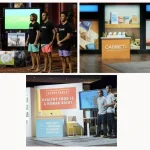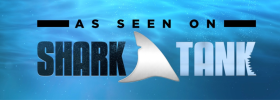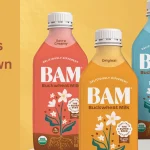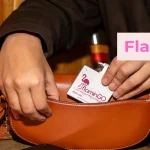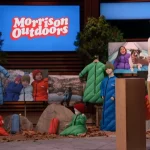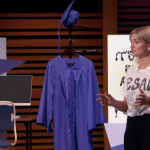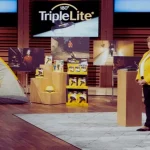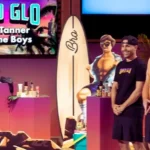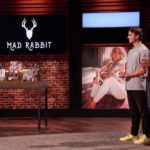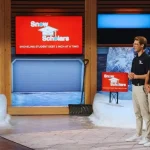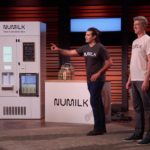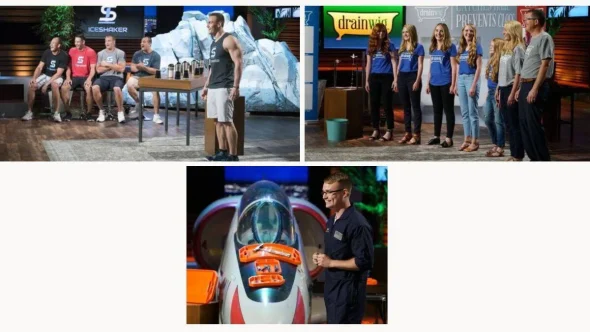
Best And Worst Pitches Of Shark Tank Season 9
Highlights
- Shark Tank Season 9 presented viewers with a completely revamped set.
- Guest Sharks Richard Branson and Sara Blakely appeared as investors.
- Ice Shaker and Grypmat bagged impressive multi-Shark deals.
With a successful run season by season, Shark Tank faces the challenge of instilling freshness in the well-established show. In an attempt to do the same on a real-life basis, the makers brought in a revamped set in Shark Tank Season 9. The promise was to uplift the visual appeal along with fresh new pitches.
This season also grabbed headlines due to its list of guest panelists, including Richard Branson and Sara Blakely. Each of the Sharks got to see a wide variety of pitches, including an ingenious meditation app, shaker bottles, and bathroom cleansing tools.
Below is a detailed breakdown of some of the best as well as worst pitches of Shark Tank Season 9.
Best Pitches: Shark Tank Season 9
Shark Tank Season 9 emerged different from others due to deals locked for some of the simplest products, including shaker bottles and drain cleaners. One common thing was the clear-cut presentation and convincing skills of the pitchers. From Grypmat to Drain Wig, here are the best pitches of the season:
1. Ice Shaker
Ice Shaker was one of the best pitches in Shark Tank Season 9 for multiple reasons. First, the entrepreneurs kept the judges involved from the beginning through their energetic presentation. Second, they were thoroughly prepared for questions about product margins and sales made.
Chris Gronkowski and his brothers brought Ice Shaker, a shaker bottle that kept ice for 36 hours, to the show. They sought $100K for 10% equity in the product, which had double-wall vacuum insulation. Making the pitch entertaining, they invited the Sharks for a game of five-on-five and very smoothly advertised their product samples.
The judges loved the energy and were further happy to hear the figures, including $80K in sales and a $20 cost margin. All of them proposed their offers, but eventually, Chris locked the deal with Alex Rodiguez and Mark Cuban at $150K for 15% equity.
The business did well after the show, with an annual revenue of $1 million (by 2021).
2. Drain Wig
Drain Wig was a standout pitch on Shark Tank Season 9 because of the entrepreneur’s smart, convincing skills. Although the Sharks had proposed their offers, it started appearing towards the end that the deal may not materialize. However, the entrepreneur forced them to revise the offer with an emphasis on the business’ distinctive features.
The entrepreneur couple of Jennifer and Gifford Brigs approached the panelists along with their five daughters to introduce DrainWig. The product allowed one to clear out drains clogged with hair using its unique chain. They presented an offer of $300K for 5% of their company.
Impressed by the product, Kevin O’Leary offered $300K at 20% equity. Daymond John offered the same. Lori Greiner proposed $300K for 25%. When Jennifer countered at 10%, none of them agreed. But then she stated the product’s huge potential in the hotel industry and offered $300K at 15%. Kevin took the deal.
The latest update is that DrainWig is making an annual revenue of $1 million.
3. Grypmat
Grymat was an ideal example of a prepared entrepreneur who knew all about the judges, his product, and the business numbers. In one of the best presentations on Shark Tank Season 9, he impressed the investors and convinced them to agree to his counteroffer in the end.
Entrepreneur Tom Burden made his way to the panelists with a tool tray that strongly gripped tools on the surface of curved planes. Seeking $200K, Tom proposed an offer with 10% equity. Highlighting the business figures, he revealed to have made $400K through sales. Every investor seemed impressed by the product and the numbers.
Although Daymond John made the first offer at $200K for 25% equity, Tom expressed his interest in a multi-Shark deal. When asked about his ideal partner, the entrepreneur picked Richard Branson owing to his aviation history. The final deal was then locked with Richard, Mark Cuban, and Lori Greiner at $360K for 30% equity.
By 2023, the company made $2 million in annual revenue.
Worst Pitches: Shark Tank Season 9
Like the previous seasons, Shark Tank Season 9 presented both good pitches and poor ones, which bagged zero offers. Sometimes, pitchers’ attitudes irritated the investors, while in others, the idea was confusing. From Simple Habit to Coco Taps, here are some of the worst pitches of the season.
1. Simple Habit
Simple Habit can not be left out if we are talking about the worst pitches of Shark Tank Season 9. The prime reason for this is that after asking for a huge valuation, the entrepreneur was not ready for negotiations with the judges. Even after getting offers, it was clear she was not willing to bag a deal and only wanted exposure.
Yunha Kim came to the tank with Simple Habit, a meditation app specially curated for busy people. Seeking an investment worth $600K for 5% of her business, Yunha described the app’s functioning and benefits. Revenue reached $750K by 2017, and she had already raised $2.8 million for a $10 million valuation.
Hearing the numbers, Mark Cuban stepped out of the deal by calling her a ‘gold digger’ who was there only for commercial aspects. Lori Greiner, too, felt the same and left the deal. Richard Branson and Robert Herjavec did make a joint offer of $600K for 15% equity, but Yunha rejected it.
The latest update is that Simple Habit has made $2 million annual revenue by 2024.
2. Trippie
In one of the worst pitches of Shark Tank Season 9, the Trippie founder earned harsh feedback from judges due to his wrong attitude. When one of the investors opted out of the deal, he said he didn’t have a rich uncle to help him. This reflected the entrepreneur’s inability to face pressure situations.
Ryan Diew, a budding entrepreneur, came up to the Sharks with his product Trippie, an app that
helps navigate huge airports easier than ever before. Seeking a valuation of $100K at 10% equity, Ryan highlighted the need for an airport directory when searching for a particular place or thing in the massive area.
But when the Sharks expressed their apprehensions about investing in the product, a visibly irritated Ryan said he didn’t have a rich uncle to help him. The Sharks were highly offended by this and schooled him on it. Ultimately, he had to walk out without a deal.
After closing once in 2020, Trippie came back into business and is now nearing $8 million in lifetime revenue.
3. Coco Taps
Coco Taps’s pitch is among the worst on Shark Tank because it was confusing. The entrepreneur highlighted numerous aspects of his business, which made the panelists lose interest. Additionally, he could not convince them about Coco Taps’s scalability.
Entrepreneur Vincent Zaldivar approached the investors with his business focused on coconut tapping and re-sealing. He sought $150K for 10% equity. Vincent stated that 80% of the venture sold pre-tapped coconuts mainly to resorts. Plus, 5-10 cases were delivered to resorts every day. The sales made by 2016 were $250K.
The judges seemed highly confused about the business model. Mark Cuban opted out, stating that a lot was going on in the company. Barbara Corcoran felt the venture was in its early stages, so she stepped out as well. The other panelists also refrained from making an offer, leading to zero deals.
The annual revenue made through the sale of kits is $1 million (by 2022).
Conclusion
Shark Tank Season 9 presented audiences with impressive pitches like Ice Shaker, Grypmat, and DrainWig, which reiterated the importance of preparation and communication skills. Conversely, pitches like Trippe, Coco Taps, and Simple emerged as lessons for new pitchers by stressing the need for adaptability and the ability to take negative feedback.
References
- Ice Shaker: Here’s What Happened After Shark Tank, Food Republic, Sharon Rose
- Here’s What Went Down With Simple Habit After Shark Tank, women.com, Amanda Chatel


